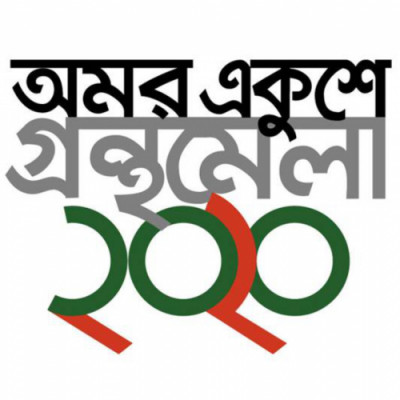Keeping indigenous culture alive through literature


They say, this land has been my home for thousands of years
The hills, the forests, the rivers and the streams
My existence has been interweaved with all of them for long, and I call this land my "mother".
As she is benevolent, she embraced me as her child to live on the land for thousands of years.
This is how the first verse of a poem, titled "Ami Udbastu Hote Chaina" (I don't want to be a refugee), on Garo people living in Modhupur district begins. Throughout this piece, poet Theophil Nokrek penned down Garo people's love for their motherland and the sorrowful events that they have had to endure.
The book is available at Thokbirim (stall-68) at the little mag corner in Suhrawardy Udyan.
"This book has 46 poems and most of them are written on Garo people. Besides, several issues like extremism are also in the poems," said Theophil Nokrek, also a researcher on indigenous people.
"There are nearly two lakh Garo people in Bangladesh and only 15 indigenous writers were published this year. This can't be enough. Bangla Academy has the responsibility to patronise indigenous writers and publishers so that respect for all languages is restored," he added.
Like him, there are a handful of indigenous writers who are trying to keep their culture alive through literature and stepping forward to spread it among the Bangali people who rarely get to experience indigenous traditions.
Another writer, Shohel Chandra Hajang wrote a book on indigenous rights titled "Adibasider Odhikar O Attoporichoy", which was also published by Thokbirim.
"Indigenous rights are a part of human rights. To establish the rights of our community, we have to keep writing," said Hajang, who is also an indigenous rights activist.
Regarding the indigenous writers, he said, "There are new authors who are trying to write more on our culture. However, they do not have a specific platform for promoting their work."
"Bangla Academy can take initiative to recognise indigenous writers and publications. They can arrange an award for indigenous writers or publishers during the book fair," he added.
Like previous years, only two publication houses Mikhun Raksham's Thokbirim and Shadhan Maibam's Teuri are the sole indigenous publishers this year.
A total of 30 books have been published so far from Thokbirim. This year they released 11 new books, while Teuri published one book by an indigenous writer.
"Thokbirim is a literary magazine for Garo people. We are yet to bring ourselves out as a full-fledged publication house at the book fair. However, we publish books on indigenous lives, particularly the Garo community," said Mithun Raksham.
Besides, Raksham, who is also a poet, said that more writers will come up if the Bangla Academy recognises indigenous writers and publishers every year.
Teuri publisher Maibam echoed this statement.
While these publications are working solely on indigenous literature, there are few other publishers who are also interested in publishing such literature.
Pendulum is one such publication house, which brought out a book on Garo folklore written by Magdelina Mree.
"I wanted to promote secularism and diversity in my stall. Therefore, I was looking for an indigenous writer and later I found one," said Rumman Tarshfiq, publisher at Pendulum.
Regarding indigenous literature, she said, "We do not have enough connection with indigenous writers, so promoting their literature becomes a challenge. But focus on indigenous writings should be increased at the fair."
Contacted, Director General of Bangla Academy Habibullah Siraji said he is not well aware on indigenous literature, but the academy will look into the matter.


 For all latest news, follow The Daily Star's Google News channel.
For all latest news, follow The Daily Star's Google News channel. 



Comments